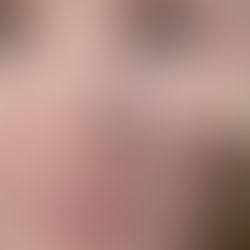Are all alcohols bad in skin care products?
- Sylwia Marchewka
- Mar 17, 2024
- 2 min read
Updated: Apr 4, 2024
Alcohol in cosmetics? It sounds dangerous, so I'd like to explain which alcohols we should avoid and which of them are completely safe and even beneficial to the health of our skin.
I got the idea for this entry from my sister, who told me about her search for a hair mask. Checking the labels, she couldn't find a product that didn't contain alcohol and ultimately decided not to buy it. Completely unnecessary!
Alcohols are a group of chemical compounds with a similar molecular structure. And often the similarities between them end there. Are all alcohols bad in skin care products?

'Bad' alcohols are:
ethyl alcohol
alcohl denat
alcohol
ethanol
isopropyl alcohol
Of course, these ingredients are sometimes necessary in medical products that are intended to disinfect and have a bactericidal effect. However, when applied to our facial skin every day, they can dry it out and destroy its protective barrier, leading to more and more serious skin problems.
Alcohol in e.g. a mattifying toner for impure, oily or acne-prone skin gives a feeling of cleanliness, freshness and unblocked pores. It seems to us that our skin is finally breathing and the bacteria causing all the problems have been destroyed.
Unfortunately, when using this type of product, our skin dries out, stimulating an increasing need for sebum production, which ultimately leads to inflammation and the severity of acne.
Our attention should be paid to products in which the above-mentioned alcohols are at the forefront of the list of ingredients.

'Good' alcohols are fatty alcohols
cetyl alcohol
cetearyl alcohol
stearyl alcohol
mirystyl alcohol
They are emollients that soften and nourish the skin, improve its elasticity and prevent drying. They also make the cosmetic more stable and easier to spread on the skin. Additionally, they do not irritate or cause allergies, so they can be used by people with even very sensitive skin. Cetearyl, Brassica and Cetyl alcohol are the best ingredients in hair masks and conditioners - so we don't have to worry about their presence in this type of cosmetics.

On cosmetic labels you will also find, usually at the bottom, alcohols that are components of preservatives or naturally occurring allergens in essential oils. We call them aromatic alcohols, and unless we are allergic to them, they are safe for our skin. These are:
benzyl alcohol
anise alcohol
cinnamyl alcohol
I hope that my article will allow you to distinguishdifferences between good and bad alcohols, so that you can choose the best cosmetic for your face, body or hair with peace of mind.
Have a wonderful day
author: Sylwia Marchewka























Comments